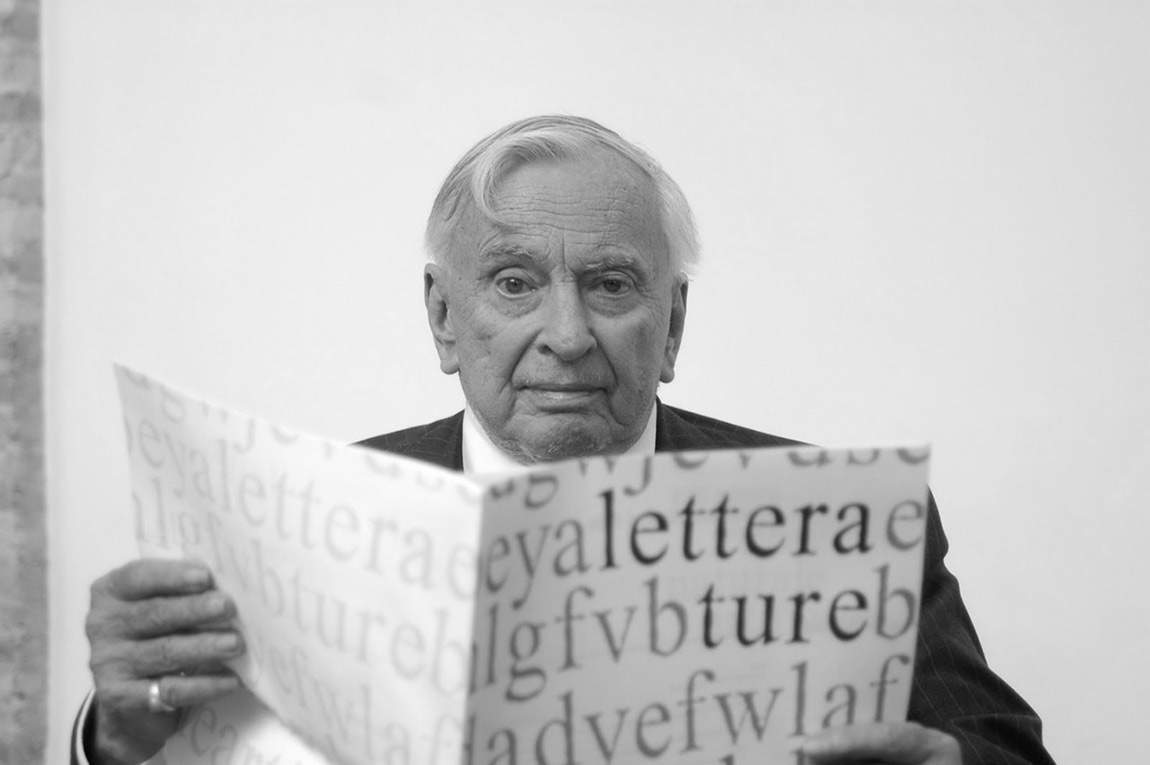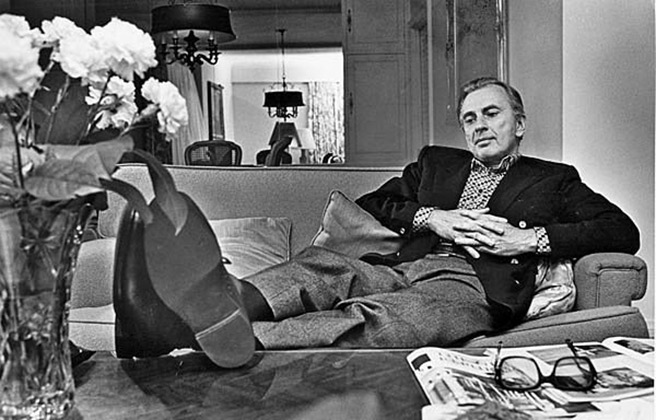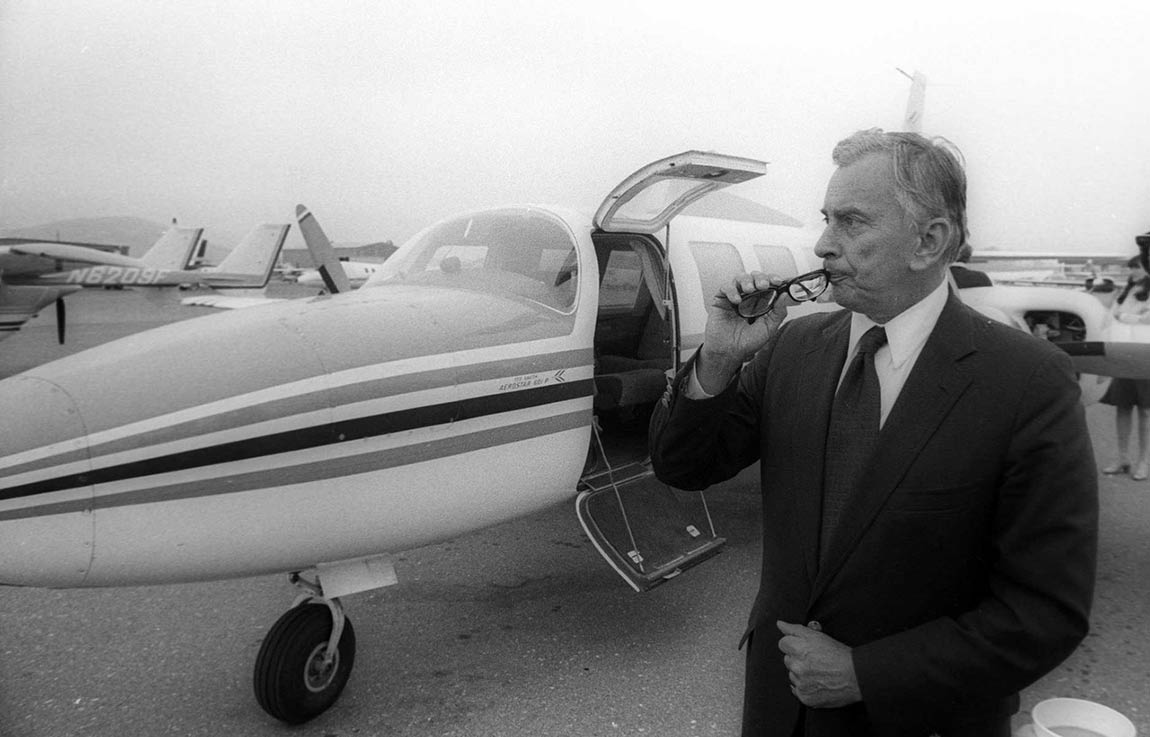Meeting the Man with the Acid Tongue
We speak to filmmaker Nicholas Wrathall about the renowned author and contrarian, Gore Vidal.
Few individuals cut to the heart of American society with the same degree of wit or insight as author Gore Vidal. And for a man who once said, "there is no human problem which could not be solved if people would simply do as I advise," he didn't have much humility about it either. Highly outspoken on all the issues you're never meant to talk about — sex, politics, religion — and capable of savaging conservatives with either his pen or acid tongue, Vidal was one of America's foremost public intellectuals, until his passing in 2012 at the age of 86.
A friend of Vidal's nephew, Burr Steers, Australian-born filmmaker Nicholas Wrathall first sat down to interview Vidal in 2005, laying the foundations for what would eventually become the documentary Gore Vidal: The United States of Amnesia. In anticipation of the film's release at Melbourne's Cinema Nova, we spoke with Wrathall about the making of the film and his impressions of the man himself.
MEETING VIDAL
"I really started to taking notice of Gore again after 9/11," says Wrathall. "I was living in New York, during that horrible chaos, and Gore was one of the only people in the media landscape who seemed to be speaking sensibly to how the US should be reacting, and speaking out against the drumbeats to war and the media propaganda and the Bush administration's rush into the Middle East."
"Then a few years after that, in 2004, I had the opportunity to meet him in LA in a casual way with Burr and the family," Wrathall continues. "One of the first conversations I had with him was actually about Australian politics. He was very interested in an update in what was going on in Australia, and was asking me for an update on Bob Carr … I didn't realise at the time that he was actually friends with Bob, and also knew Gough Whitlam quite well. That was probably one of the bonding conversations where I gained his trust a little bit, in that it was something that I could actually speak intelligently to."
Certainly, one wouldn't want to look stupid in front Vidal. "You can be quite out of your depth with Gore in a serious conversation," says Wrathall. "It can be very intimidating. He certainly doesn't suffer fools. But he's also very generous, and loves to inform, and share his knowledge and experience. So he's very kind, in my experience, especially to younger people... you wouldn't want to get into an argument with him though."
MASTER OF THE MEDIA
Famous for saying he never missed a chance "to have sex or appear on television," part of Gore's rise to prominence, Wrathall asserts, came from his ability to play to the camera. "He really knew how to work the media," says Wrathall. "He was always being interviewed and being invited on talk shows, and because of his humour and his wit, I think he was a great guest for someone like Johnny Carson or Dick Cavett to have on dick their show.
"He loved to push the envelope, and say the things that other people might think, but wouldn't dare to say. He was very outspoken. I think you can see in a lot of the clips [in the film] from the 50s and 60s that many of the things that he said were ahead of their time … he was a great guest in the media landscape at the time, which was maybe less afraid, and less conservative than it is today, and was willing to have these sorts of public debates and issue-based conversations more openly."
POLITICS AND POWER
Vidal was never shy about his opinions, particularly when it came to politics. "I think he was very pragmatic," says Wrathall. "He was brought up a lot by his grandfather, who was a senator, and a great orator himself. He had people like [Senator] Huey Long coming to his house for dinner, and he'd see their conversations. And then he'd take his grandfather to the senate the next day, and he'd see the same speech that Huey had rehearsed at the dinner table on the senate floor. So he realised that there was a lot of showmanship, and a lot of strategy … He was very clued into that even as a teenager. He came to politics, and to writing about politics, in a very informed way. And that's really his power."
Of the current administration, Wrathall believed Vidal had "great hope," but that he also "measured that hope," because "in reality, there are so many compromises that had to made to get to that position". Perhaps Vidal put it best himself when he said that "any American who is prepared to run for President should automatically, by definition, be disqualified from ever doing so."
Gore Vidal: The United States of Amnesia opens at Cinema Nova on March 6.








